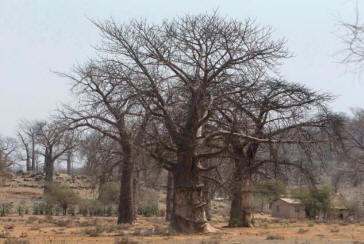Science & Technology
|
|||
|
|
Subscribe to Time magazine at special rates in Pakistan
|
||
Pakistan's premier website that covers current affairs and news.
![]()
![]()
![]()
Climate impacts 'to cost world $7.9 trillion' by 2050
Climate change could directly cost the world economy $7.9 trillion by mid-century as increased drought, flooding and crop failures hamper growth and threaten infrastructure, more accurate testing ground for new drugs, reports Popular Science magazine. (Now available in Pakistan)

The Economist Intelligence Unit's (EIU) Climate Change Resilience Index measured the preparedness of the world's 82 largest economies and found that based on current trends the fallout of warming temperatures would shave off three percent of global GDP by 2050.
Its analysis, which assesses each country's direct exposure to loss as climate change brings more frequent extreme weather events, found Africa was most at-risk, with 4.7 percent of its GDP in the balance.
In general, developing nations faired poorer in terms of resiliency than richer ones.
"When we are already dealing with global inequality, for the impacts of climate change the developing world's challenges are much greater," he added.
Of the countries evaluated, Angola stood to lose the most -- as much as 6.1 percent of gross domestic product.
The study put this down to a mixture of a lack of quality infrastructure, as well as its geographical exposure to severe drought, soil erosion and rising sea levels.
Nigeria (5.9 percent negative GDP), Egypt (5.5 percent), Bangladesh (5.4 percent) and Venezuela (5.1 percent) were the next most climate vulnerable nations identified in the analysis.
To read full content subscribe to the Popular Science magazine
More Stories on Science and Technology
· Microsoft’s free upgrade to its latest operating system is about to expire
QWERTY effect
Stories from Pakistan
By Sale (Popularity) :
1. @internet
2. Scientific American
3. Popular Science
Editor's Choice (Content value):
1. New Scientist
2. Wired (UK)
3. Focus
23 December 2016
Comments are published after editorial approval: 0 Be the first to comment...
Share your views at feedback@newsflash.com.pk
![]()
![]()
![]()
![]()
![]()
Send your contributions at editor@newsflash.com.pk



